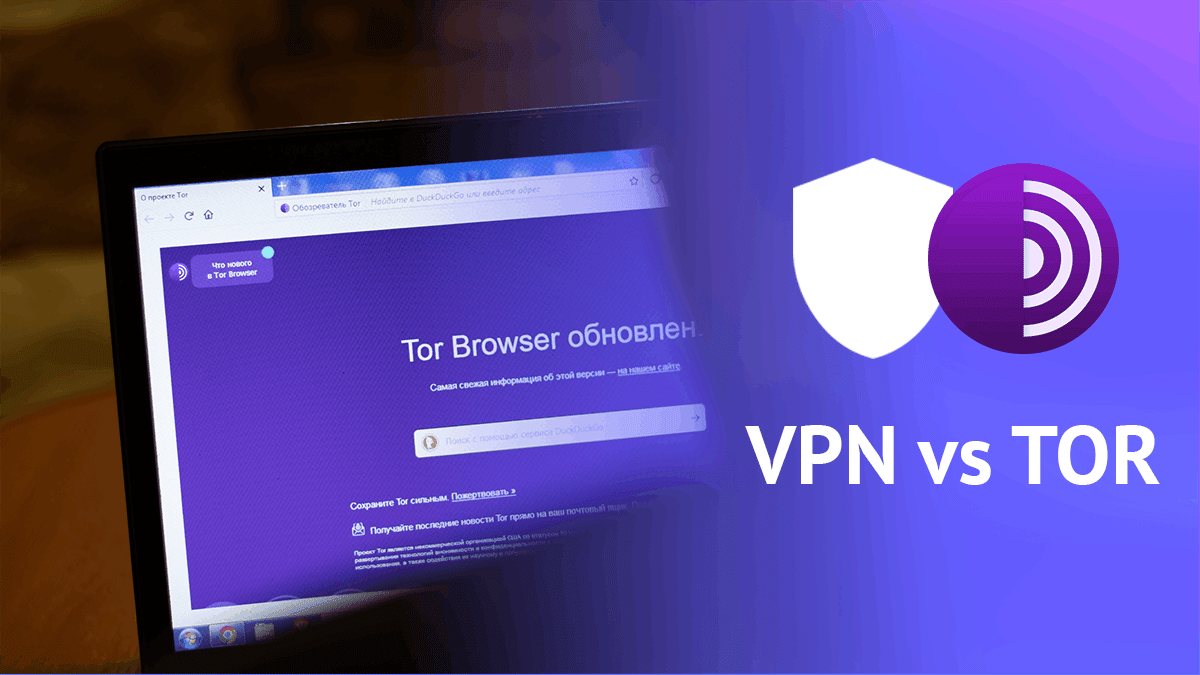
VPN vs Tor vs Proxy Servers in 2025: What’s the Best Way to Stay Anonymous Online?
Proxy servers lack encryption and can’t be trusted for individuals. Tor is an important service, but for maximum safety, you should combine it with a VPN. I recommend NordVPN, which you can try for free a 30-day money-back guarantee.
VPN vs Tor vs proxy servers: If you know anything about online security, you’ve probably wondered about the difference at least once. They’re both tools you can use to keep unwanted attention away while you browse the internet. So what sets them apart? Is there even a difference? Is it OK to use just one? And how do proxy servers figure in?
If you’re pressed for time, here’s a spoiler: You can use a VPN without Tor, but you should never use the Tor network without a VPN. And you should never use proxy servers at all.
- Best VPN service
In this article, I’ll unravel the various benefits of The Onion Router (Tor), a virtual private network (VPN) and proxy servers. By the end, I hope you’ll have a complete understanding of the weapons in your internet security arsenal.
Do I need a VPN if I have Tor?
Yes, you still need a VPN. In fact, you should never use Tor without a VPN, due to the danger of compromised nodes.Can I be tracked if I use Tor?
It’s difficult, but if their connection passes through a malicious relay, Tor users might get stuck with trackers that can follow them to their final destination. Using a VPN can prevent this.
VPN vs Tor vs Proxy Servers: The Basics
Let’s start by going over each of the contestants in the Tor vs VPN vs proxy battle. After that, I’ll pit them against each other to determine which option (or options) can best secure your online activity.
Virtual Private Networks
- Hides your IP address
- Encrypts all your traffic
- Changes your virtual location
- The VPN provider can see your activities
- Hard to tell which VPN options are worth your money
The popularity of VPNs has exploded over the last few years, with this formerly esoteric security tool going mainstream. You’ve almost certainly heard about VPNs at least once, whether from your friends or through advertising. But how does a VPN work, and can it keep you safe?
A VPN is a network of servers you can access through an app you download onto your computer, tablet or phone. When you connect to the VPN, you choose a server, which becomes your virtual “location” for as long as you’re online. Your IP address (a digital signature that identifies you online) changes to that of the VPN server.
Anytime you connect to the internet, your requests run through the VPN first, so they appear to be coming from the VPN server. This VPN connection has a few benefits. If anyone is watching your internet traffic — so they can sell it to advertisers, for example — they’ll see the VPN server, not you. This also means that nobody can use your IP address to find your location in the real world.
You can also use a VPN server to pretend to be in another country. This is useful if you want to access content that’s restricted in your country or get around VPN blockers that span an entire nation, like China’s Great Firewall.
A VPN offers one final benefit to its users: encryption. Encryption garbles everything you do online, so it can only be decoded by the intended recipient. Without encryption, eavesdroppers could trace your website requests back to your original IP address, but with encryption, they don’t know what to follow.
That all sounds great. And it is! I strongly recommend never going online without a VPN. But there are a couple of downsides.
First, there are a great many VPNs available. We recently conducted speed tests of the top 25 VPNs and had to whittle that list down from a much larger field. On balance, it’s a good thing that any doofus can build a VPN — it increases the amount of independent, trustworthy options — but you have to wade through a lot of garbage first.
Second, when you’re using a VPN, your activity is concealed from everyone except the VPN itself. They have to be able to see your internet traffic in order to bounce it between servers. Most reputable VPNs anonymize that data and don’t log it or sell it. But that’s the catch: You have to take the VPN’s word for it, and they don’t all keep their promises.
The Onion Router (aka the Tor Network)
- Decentralized network, so the managers can’t see your traffic
- Lets you access sites on the dark web
- Open-source and free to use
- Some relay managers are malicious
- Automatically blocked by some sites
The Tor network is a unique and vital part of the online security landscape. It’s administered by volunteers at the Tor Project and is most commonly accessed through the free-to-download Tor Browser.
Like a VPN, Tor is a giant worldwide network of servers. Unlike a VPN, Tor doesn’t have servers that are owned by a single entity. Regular people volunteer to convert their computers into Tor servers, called “relays” or “tor nodes.” Anybody can be a relay manager, so long as they meet a few technical requirements.
The “onion” in Tor’s name refers to the way it handles secrecy. When you connect to the internet through Tor Browser, your connection ping-pongs through several randomly selected relays. Each one encrypts the traffic, so you’re under several layers of encryption by the time you get to the last node before your destination (the “exit node”).
The exit node sends you along to your requested website with the key that “peels back” the layers of encryption — just like peeling an onion.
Why bother doing it this way? In theory, there is no time in the process when anybody can see who you are or what you’re doing. The final server can’t see the point of origin. The relay nodes can’t break encryption. You’re concealed for the entire journey.
In practice, there are some issues with the Tor approach. The biggest is the lack of vetting for relay managers. It’s unavoidable: If the Tor Project set up a rigorous application process, it would consolidate control over the network, something it steadfastly refuses to do.
However, it means that bad actors can creep in. Some relays inject malware into Tor users’ connections, often to spy on them when they leave the exit node. Others hijack traffic to infect the destination website. For this reason, many sites block all Tor traffic outright, refusing to take the risk.
Malicious relay managers come from all sides. They can be hackers, or entities with government-level support, as in the mysterious KAX17 crisis. The Tor Project tries to remove them, but it can’t catch everybody.
Proxy Servers
- Sometimes cheaper and faster than a VPN
- No encryption
- Useless for actual security
I’ll keep this section simple: Do not use proxy servers for online security. They provide half the service of a VPN, in the same way that a unicycle provides half the service of a bicycle.
When you use a proxy server, your internet connection travels through the proxy before moving on to its final destination. So far, so good. As with a VPN, you’ll have a different IP address at first glance.
The problem is that proxy servers do not encrypt your traffic like VPNs do. Anybody can see what you’re doing, and if they look at the proxy server, they can also see exactly where your connection originated. It’s a paper-thin disguise that only holds up if nobody bothers to check.
Is there a point to proxy servers? Yes, but they’re not for the average Joe.
E-commerce businesses frequently snoop on each other’s stores to check prices, marketing, and other corporate secrets. If one store catches another creeping around, it might ban the competitor’s IP address.
To snoop freely, the competitor might use proxy servers, since no site has the time or resources to follow every visitor back to its origin point. The most highly prized are residential proxies — that is, real IP addresses whose owners rent them out for cash.
Proxy servers are on the wrong side of the online privacy war. They’re about espionage, not security. They’re cheaper than a VPN and easier than Tor Browser, but there’s no reason for an individual to ever use one.
Tor vs VPN vs Proxies: Which Is Best?
Short answer: In the Tor vs VPN fight, a VPN is the best choice. It’s the only one that offers you pretty good security (i.e., enough to stop any reasonable attack) on its own.
Now that you’re familiar with how each of the three options works, I can explain what I said in the intro. To recap, you can use a VPN without Tor, but you should never use Tor Browser without a VPN.
Using a VPN to access the Tor network is called “Tor Over VPN,” and it’s the most secure way to use the internet (unless you have secret military technology, in which case I don’t know why you’re reading this). It won’t protect you from everything, but you’ll be a harder target than 99% of people online.
The two tools complement each other perfectly. The main problem with a VPN is that you have to trust the VPN provider with your sensitive information. But if you’re using Tor and a shady VPN provider tries to spy on you, it’ll see nothing but layers and layers of onion.
The problem with Tor is that you can’t trust all the relay managers. But if a relay manager tries to spy on you, they’ll run into the encryption and masking from the VPN. Trying to circumvent one measure nearly always runs into the other one.
With all that said, Tor Over VPN offers a bit more security than most people need. It’s like driving a tank to the grocery store: technically safer, but you’re also making things harder on yourself.
You can tell a VPN is safe by its privacy record. Research the VPN and see if it’s ever been caught selling user secrets or letting law enforcement paw through its servers. The longer a VPN has been in existence without doing that, the safer you can feel trusting it.
There is one situation in which you can’t go without Tor — if you’re accessing the dark web. Sites on the dark web protect themselves by using .onion URLs, which can only be reached through the Tor network. You’ll need to download Tor Browser or another browser capable of onion routing, then copy-paste the URL.
Proxy servers are just a weaker version of VPNs. Unless your job is corporate espionage, there’s no reason to use them.
Conclusion
I hope I’ve been able to enlighten you about the importance of these three tools for online security. If you’re looking for a VPN you can trust without layering Tor over it, I recommend NordVPN, Surfshark or ExpressVPN.
If the price is pushing you to consider using a proxy server instead, I urge you to think twice. Several VPNs, including Windscribe and ProtonVPN, have free plans, and several VPN providers have plans that are cheaper than some proxies.
As always, thanks for reading. Do you have a favorite VPN provider or way to use Tor? Have these security measures ever saved your life online? Tell me the story in the comments!

What about utilizing a Smart DNS? Understanding that they don’t provide encryption or anonymity the same way a VPN might, it still removes DNS traffic of identifying data. Is there any benefit to using Smart DNS over a VPN or Tor?